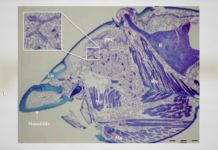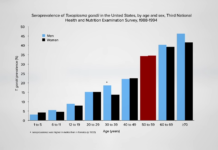Table of Contents
Introduction
Intermittent fasting is an eating pattern that focuses on regular periods of voluntary fasting, alternating with periods of eating. While it is not a diet, per se, intermittent fasting is often used alongside a specific diet to help maximize the health and wellness goals of individuals. As with any lifestyle change, it's important to research first and talk to a healthcare professional before beginning fasting.
The basic concept behind intermittent fasting is that by reducing the period of time dedicated to eating, certain metabolic changes happen in the body which enable different benefits related to physical and mental wellbeing. There is evidence to suggest that intermittent fasting can support weight loss efforts, aide in overall health and improve energy and mental clarity.
History of Intermittent Fasting
Intermittent fasting is a lifestyle choice that has been practiced throughout the ages. It has found its roots in ancient customs, as a way of life and as an important part of spiritual practice in some traditions. During the ancient time, due to food scarcity and other health considerations, it was normal to observe intermittent fasting periods.
In the modern day, many cultures widely accept intermittent fasting as an effective way to improve one’s health, both physically and mentally. In fact, its popularity has grown immensely over the last few decades, with more and more people opting to incorporate intermittent fasting into their daily lives.
Nowadays, it is not just practiced for spiritual and health reasons, but also for convenience and weight loss. Its increasing popularity has fueled research and studies into the benefits of intermittent fasting. As a result, there has been a surge of interest in the practice from medical professionals and the general public alike.
How Intermittent Fasting Works
Intermittent fasting works by allowing the body to go through a natural cycle of feasting and fasting. During the feasting period, or eating window, the body has time to digest and absorb the nutrients and calories from the food that was eaten. The fasting period is then used to help the body rest and recover, as it will not be taking in any new food or energy. This process helps the body's metabolism to adjust to this pattern and become more efficient over time.
Fasting fits into this cycle by restricting the amount of time that you are able to eat each day. This can be done by limiting the hours of the day that you can have meals, or by having fasting days where no food is consumed for an extended period of time. This allows the body to adjust to the feast and fast cycle while still getting the necessary nutrients and energy it needs for everyday life and physical activities.
The Different Types of Intermittent Fasting
Intermittent fasting has been applied in various forms, each approach having its own set of rules and guidelines to follow. Here are some common types of intermittent fasting that can be adapted to fit within your lifestyle.
- 5:2 Fasting: This approach is to eat normally five days out of the week and reduce caloric intake substantially for two non-consecutive days.
- Time-restricted Eating: This involves fasting for certain hours, usually 12-14 hours, and eating all your food between this timeframe.
- Alternate Day Fasting: This means consuming no calories one day and eating normally the next day.
These approaches are only a few out of the many ways you can practice intermittent fasting; however, it is important to adjust your routine according to your body's needs. It is also recommended to consult with a medical professional before starting any type of fasting diet.
Benefits of Intermittent Fasting
Most people hear about intermittent fasting and dieting in the same breath, but this practice has far greater benefits than just losing weight. Intermittent fasting not only helps to improve physical health and fitness, but also offers many mental and emotional benefits as well.
The primary benefit is that intermittent fasting helps you to lose weight, reduce body fat and increase muscle mass. By reducing your calorie intake, your body needs fewer calories to fuel daily activities, making it easier to reach and maintain a healthy weight.
Additionally, intermittent fasting helps reduce your risk of developing certain chronic illnesses such as heart disease, Type 2 diabetes, and cancer.
It is also important to note that intermittent fasting can help sharpen mental clarity and focus, resulting in improved concentration and productivity. This is because fasting can reduce oxidative stress in the brain, helping to improve overall cognitive performance.
Furthermore, fasting has been found to reduce anxiety and depression levels, while also boosting mood and self-confidence.
Important Considerations
Before beginning an intermittent fasting program, it's important to understand the possible risks and challenges of this lifestyle and take the necessary precautions. It's also important to debunk any misconceptions that may be out there.
First, if you're on any medication or have any concerning medical conditions, it's best to consult with your doctor before considering intermittent fasting. Even if you're generally healthy, it's a good idea to talk to a medical professional who can give you personalized advice.
One of the most common concerns with intermittent fasting is that it is a form of starvation and not healthy for the body. However, research has shown that when done safely, it can actually be incredibly beneficial to your overall health. As long as you're following a diet rich in nutrient-dense foods and getting enough sleep, intermittent fasting can be a great way to lose weight and stay healthy.
Finally, another common misconception is that you need to be eating six or seven meals a day in order to be healthy. This isn't necessarily true. In fact, studies have shown that eating fewer meals can be just as beneficial as eating more. As long as you’re eating a healthy, balanced diet, you don’t need to worry about eating at specific intervals.
Intermittent Fasting Diets
Intermittent fasting doesn't need to be complicated. There are some diets you could follow that will fit into an intermittent fasting lifestyle. Here are some of the most popular types.
- The 16/8 Method: This method involves fasting for 16 hours and then eating within the remaining 8 hours. Generally, this style of intermittent fasting begins with not eating after dinner, and then skipping breakfast, to eat lunch around 12pm and dinner around 8pm.
- The 5:2 Diet: The 5:2 diet involv es eating normally for five days a week and then reducing your daily calorie intake to 500-600 for two days a week. This is done by either skipping meals or reducing portion sizes.
- Alternate Day Fasting: In this type of intermittent fasting, you would fast for 24 hours and then allow yourself to eat normally for 24 hours and repeat. You can do this up to three times a week, however, it is important to consult your doctor if you plan on exercising during fasting days.
When deciding which type of intermittent fasting diet is right for you, it is important to consider your current lifestyle, health condition and diet goals. Even though intermittent fasting is a great way to lose weight and gain clarity of the body and mind, it should never be done without understanding the potential risks involved.
Pitfalls of Intermittent Fasting
Intermittent fasting is a practice that can lead to many positive results, however, it is important to weigh the potential risks and pitfalls when deciding whether this approach is right for you. Fasting is not always a safe practice and it is essential that all proper precautionary steps are taken before beginning.
Some potential side effects of intermittent fasting may include:
- Irritability and mood swings
- Fatigue and low energy levels
- Headaches and dizziness
- Reduced concentration and impaired judgement
- Decreased physical performance
- Digestive upset
- Nutritional deficiencies
It is important to note that these effects may be more pronounced with prolonged fasting periods. Consequently, it is advised that beginner intermittent fasters start with shorter fasts and work their way up in duration as their bodies adjust to the demands of the practice. An inadequate water intake during fasting can also lead to dehydration, low energy levels, and headaches.
Additionally, some people have noted that rapid weight loss associated with the practice can lead to loose or sagging skin, an effect that can be especially noticeable in those with preexisting conditions like diabetes or obesity. To mitigate this risk, those undergoing intermittent fasting should make sure to lose weight healthily, meaning that caloric intake is still taken into consideration.
If any of these issues occur, it is recommended to stop fasting until the situation has stabilized. It is also important to note that intermittent fasting may interact adversely with certain medications as well as conditions like diabetes. People should check with their doctor before starting any fasting protocols.

Nutrition During Fasting
Fasting can be a difficult practice, as it involves drastic changes in eating habits and lifestyle. However, fasting does not mean that you cannot eat anything at all. During the fasting period, it is important to think about getting nutrition in other ways.
There are a few options for gaining energy and getting different types of nutrients while fasting. These include:
- Consuming bone broth, which has a high concentration of minerals.
- Eating nutrient-dense foods such as green vegetables and nuts.
- Drinking calorie-free drinks such as herbal teas, coffee or water.
- Protein shakes with minimal calories, for sustained energy.
These options are meant to supplement your fasting practices, and should not be relied upon as a primary source of nutrition. It is important to keep in mind that fasting is not an excuse to ignore your body's nutritional needs.

Exercising While Intermittent Fasting
Exercise and intermittent fasting can be a powerful combination. When both are used together, they can offer great health results and improved physical and mental performance. Even during fasts, 30 minutes of light exercise can provide numerous health benefits.
The type of exercise chosen can vary, but some great examples include light jogging, swimming or walking. As the body adjusts to a fasting lifestyle, it will require less energy and therefore more intense exercises such as HIIT can eventually be practiced.
The longterm benefits of exercising with intermittent fasting include:
- Improved blood pressure and circulation
- Decreased risk of heart disease
- Increased metabolism and fat burn
- Improved lung capacity
- Stronger muscles and bones
It’s important to note that exercising while fasted is not ideal for everyone. Those who are pregnant, have a compromised immune system or have any chronic illnesses should consult a medical professional before performing any physical activities.
Intermittent Fasting Interactions With Other Lifestyles
Intermittent fasting is not a one-size-fits-all approach. It is not meant to be a lone intervention, but rather it can be ingeniously incorporated into many other lifestyles. When combined with physical activities, mindful practices, and dietary changes, intermittent fasting can become an incredibly powerful tool to improving overall health. Let's take a look at how each of these might work together.
Physical Activities
Physical activities such as running, weight lifting, swimming, yoga, and more can be highly beneficial when done in combination with intermittent fasting. Physical activities work to build muscle, burn fat, increase stamina, and burn off any extra calories from our daily diets. However, it is important to make sure that we still get enough nutrition during our fasting period, as this will help ensure that our physical activities are effective.
Mindful Practices
A major benefit of intermittent fasting is the focus on self-care and mindfulness. Mindful practices such as meditation, journaling, and breathing exercises can help us create an attitude of awareness and intention when approaching our meals and fasts. This will help ensure that we are in the best frame of mind to make the most of our fasting experience.
Dietary Changes
Finally, dietary changes can also be used to complement intermittent fasting. Reducing our sugar intake, increasing our intake of lean proteins and healthy fats, and drinking plenty of water can help to keep us nourished and energized throughout our fasting periods. This can make it easier to stay on track and maximize the potential benefits of intermittent fasting.
Conclusion
Intermittent fasting is an effective dietary practice with many potential benefits, from weight loss to clarity of the body and mind. It can be easily incorporated into a person's lifestyle, so long as they take the proper precautions and considerate the various interactions it has with other lifestyles and diets.
The key takeaway is that when practiced correctly, intermittent fasting can be very advantageous. There are different types of fasting to explore, and it's important to focus on nutrition during fasting days and to incorporate exercise with caution. By understanding what intermittent fasting is and how it works, a person can make informed decisions and create a plan that suits their needs.
To get started with intermittent fasting, here are some actionable steps:
- Familiarize yourself with the process and the different types of intermittent fasting available.
- Take into account any special considerations or concerns, such as medication.
- Start with a shorter fasting period and adjust depending on the results.
- Ensure proper nutrition by focusing on nutrient-dense foods.
- Slowly introduce exercise within a fasting period, to prevent stress on the body.
FAQs About Intermittent Fasting:
- Q: What is intermittent fasting?
A: Intermittent fasting is an eating pattern that cycling between periods of fasting and eating. It doesn't change what you eat, it just changes when you eat. - Q: What are the benefits of intermittent fasting?
A: Potential health benefits of intermittent fasting include weight loss, improved glucose control, reduced risk of high blood pressure and cholesterol levels, and mental clarity and focus. - Q: How long do I have to fast and why?
A: Generally, intermittent fasting involves limiting your time window for eating to a certain timeframe or cycle, such as 16-hours of fasting followed by 8-hours of eating. It is thought that the body healing and repairing itself during this fasting phase. - Q: Can anyone do intermittent fasting?
A: While intermittent fasting can be done by anyone regardless of age and health status, it is necessary to check with a doctor before commencing. - Q: What food should I eat while doing intermittent fasting?
A: Eating a healthy and nutritionally balanced diet is essential. Focus on plant-based foods including fruits, vegetables, whole grains, nuts and legumes as well as sources of healthy fats such as avocado, olive oil and nut butter. - Q: Are there any side effects from intermittent fasting?
A: When done correctly, intermittent fasting should have no adverse side effects. In some cases, however, it can cause light-headedness, headaches, brain fog and cravings during the fasting period. - Q: How successful are people with intermittent fasting?
A: Studies show that intermittent fasting can be successful for many, depending on a person's metabolic state and individual body composition.
















